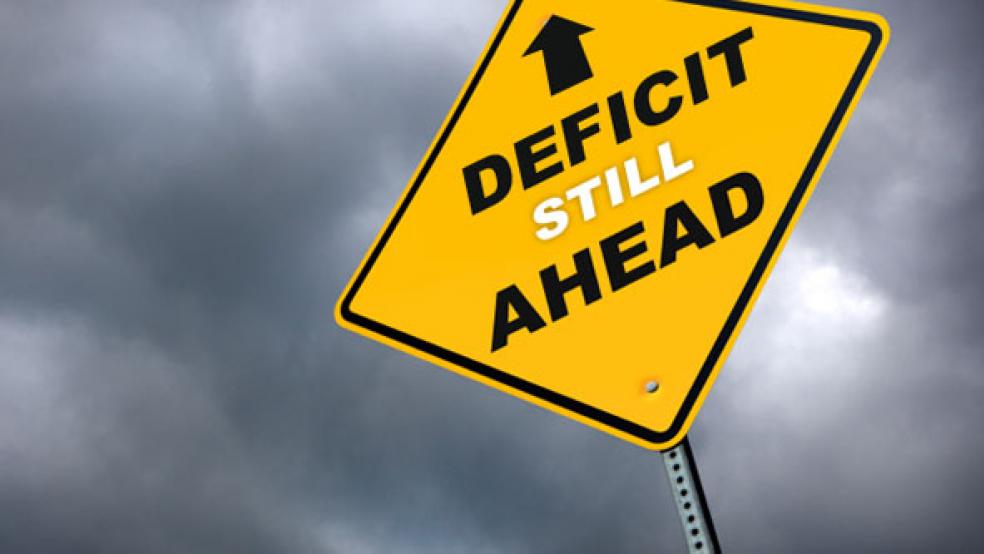The federal budget deficit for fiscal year 2021 is on track to total $2.3 trillion, or 10.4% of gross domestic product, lower than the record $3.1 trillion deficit last year but higher than any other year outside of World War II, according to a new estimate from the budget watchdogs at the Committee for a Responsible Federal Budget.
The group notes that its estimate is a rough one and could change substantially when the nonpartisan Congressional Budget Office releases its assessment of the massive coronavirus relief and government funding package passed by Congress last month. CBO estimated in September that the deficit for fiscal year 2021 would be $1.8 trillion, but that was before Congress passed an additional Covid relief package costing roughly $900 billion.
The Committee for a Responsible Federal Budget says that economic and technical changes will partially offset the additional expenditures, reducing its deficit projection by about $250 billion. Foremost among those changes, the group expects GDP to be “substantially higher” than CBO previously projected as forecasts for the economy have picked up.
“The stronger-than-projected pace of the economic recovery, higher-than-expected inflation, growing vaccine availability, and enactment of additional stimulus should all increase nominal GDP relative to CBO’s prior estimates,” CRFB said. “While CBO estimated FY 2021 GDP of less than $21 trillion in July, we now believe it will exceed $22 trillion.”
The need for budget reforms, and the obstacles to them: A paper released last week by Erald Kolasi and C. Eugene Steuerle of the Urban-Brookings Tax Policy Center offered some perspective on the long-term budgetary challenges the United States faces — and the constraints that the Biden administration could face in charting a new fiscal course. They note that, even before the virus hit, the fiscal outlook was clouded by a large imbalance between scheduled spending growth and projected revenues:
“Higher federal debt levels alone may make it harder for the president-elect to make major shifts in the nation’s fiscal path. What seems clear is that absent major reforms that significantly reduce built-in growth rates in health and retirement programs, raise revenues, or both, our current fiscal trajectory may become more locked in than ever. …
“Though the current crisis adds quite significantly to debt, some reprieve is projected in the form of lower interest costs for the medium-term. These lower interest costs largely reflect the impact on interest rates of, and monetary policy’s reaction to, a world-wide recession. However, the share of federal spending for anything other than health, Social Security, and interest on the debt will continue to shrink post-recession and almost certainly continue to do so without major budgetary reform.
“All these factors provide powerful headwinds against any presidential effort to shift federal priorities long-term, even while the current pandemic and recession highlight the need for government to start focusing more on other needs of American families, including better preparation for future pandemics and emergencies.”





